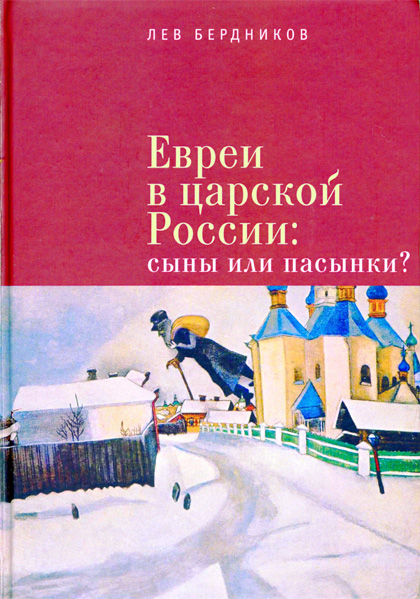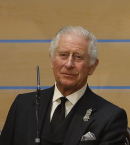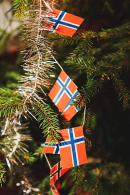
Lev Berdnikov, Evrei v tsarskoi Rossii: syny ili pasynki? (Jews in Tsarist Russia: Sons or Stepsons?) St. Petersburg: Aleteia, 2016, 432 pp., ISBN: 978-5-9906936-4-7
Book Review by Victoria Khiterer, Millersville University
Lev Berdnikov’s book explores the policies of the Russian tsars toward Jews as well as the contribution of Jews in Russian history and culture. The author uses a significant amount of the historiography on the topic, including works of Russian and Western Jewish historians, memoirs and published archival documents.
The book is divided into three parts. The first part Jews under Monarchical Rule analyzes the policies of the Russians tsars toward Jews from the fifteenth to the mid nineteenth century. The author shows that the Grand Prince of Muscovite Russia Ivan III originally did not show intolerance toward Jews. He allowed Jews to come and trade in Russia. But the appearance of the sect of Judaizers in Russia and the spread of the Judaizers’ influence in court circles provoked an atmosphere of strong religious intolerance toward Jews and Judaizers.
Thereafter all Jews were expelled from Russia; however, Jews who converted to Christianity continued to serve the court during the reigns of subsequent Russian rulers. Thus the Jewish convert to Lutheranism Daniel (Stephan) von Gaden served as physician to the court of Tsars Aleksei and Fedor Romanov. When Tsar Fedor died in 1682, Von Gaden was accused of his poisoning and was publicly executed in Red Square in Moscow. History has a well-known tendency to repeat itself. Doctors from the Kremlin hospital (most of whom were Jewish) were falsely accused of the intentional mistreatment of Soviet leaders during the ‘Doctors Plot’ in 1953. Only the death of Stalin stopped this absurd accusation and saved the Kremlin doctors from the fate of Daniel von Gaden.
Berdnikov shows the inconsistency of Peter the Great’s views on the Jewish question. At different times Peter made contradictory statements about Jews. But neither Peter nor the following Russian rulers allowed Jews to live permanently in the country until the late eighteenth century. However, some Jewish converts took high positions in state offices. For example, the outstanding diplomat, converted Jew Peter Pavlovich Shafirov, was appointed as Vice-Chancellor under Peter the Great.
Russia acquired a large Jewish population together with the Polish lands after the three partitions of Poland. Catherine the Great allowed Jews to live in Russia, but only within the Pale of the Jewish Settlement, which included the Western and Southwestern provinces of the empire. Berdnikov shows that the policy of Catherine the Great toward Jews formed under the influence of her favorite, Prince Grigory Potemkin-Tavrichesky. Potemkin was famous for his religious tolerance and his benevolent attitude toward Jews. He believed in the future revival of the Jewish people on their land in Palestine.
The second part of the book Literature Portraits focuses on the biographies of prominent Jewish figures and converts, and their contributions to Russian and Jewish culture. Berdnikov shows that some converts did not lose interest in Jewish affairs and culture, and defended the interests of Jewish people. Thus Victor Nikitin, who was drafted into the Russian Army as a cantonist at the age of nine and forced to convert to Orthodox Christianity, described in his novel Mnogostradal’nye (Long-Sufferings) how Russian commanders tortured Jewish children-cantonists to compel their conversion. Nikitin also wrote several works about Jewish agricultural settlements in Russia. The Jewish convert General Mikhail Grulev protested in his publications against the persecution of Jews in Russia. Grulev published his memoirs in emigration in 1930 under the title Zapiski generala-evreia (Notes of a Jewish General) and donated the royalties from the book to the Jewish National Fund “for Zionism.” (p. 385)
Other converts totally assimilated and acculturated with Russian culture, such as Pavel Shein, who became a Slavophile and collector of Russian folklore. There were also some converts who demonstrated open hostility toward Jews, or even used Judeophobia and anti-Semitism to enhance their careers. One of them was the comedian and writer Pavel Weinberg, who became famous for his anti-Semitic jokes and publications. He depicted Jews as greedy, dirty, religious fanatics and mimicked on the stage the Yiddish accent in Russian language.
The third part of the book ‘Poor Millionaire’ Rothschild in the Mirror of Russian Culture shows how much attention Russian literature and press gave to the wealthiest Jewish family in Europe. Berdnikov shows that the Rothschild family became in Russia a symbol of power, wealth and ‘soulless’ capitalism. Judeophobes and Slavophiles criticized the Rothschilds, while Westernizers usually admired them. The famed Russian writer, thinker and Westernizer Aleksandr Herzen devoted to the Paris banker a chapter in his memoirs Byloe i Dumy (My Past and Thoughts), to which he gave the sarcastic title “Emperor James Rothschild and Banker Nicholas Romanov.” The chapter recounts that when Herzen emigrated for political reasons from Russia, his mother’s assets were frozen. Herzen asked the Paris banker James de Rothschild for help. Rothschild purchased the frozen assets and forced Tsar Nicholas I to pay the debt with interest. The Tsar submitted to the demand, because Rothschild threatened to otherwise publicize the case in the press and deprive Russia of future credit.
The book opens for us many unknown and semi-forgotten pages of Russian Jewish history and culture. It is written in a very elegant, scholarly yet popular style. There are many amusing stories and anecdotes combined with serious research. Reading the book will greatly benefit specialists and well entertain a wider audience.




























